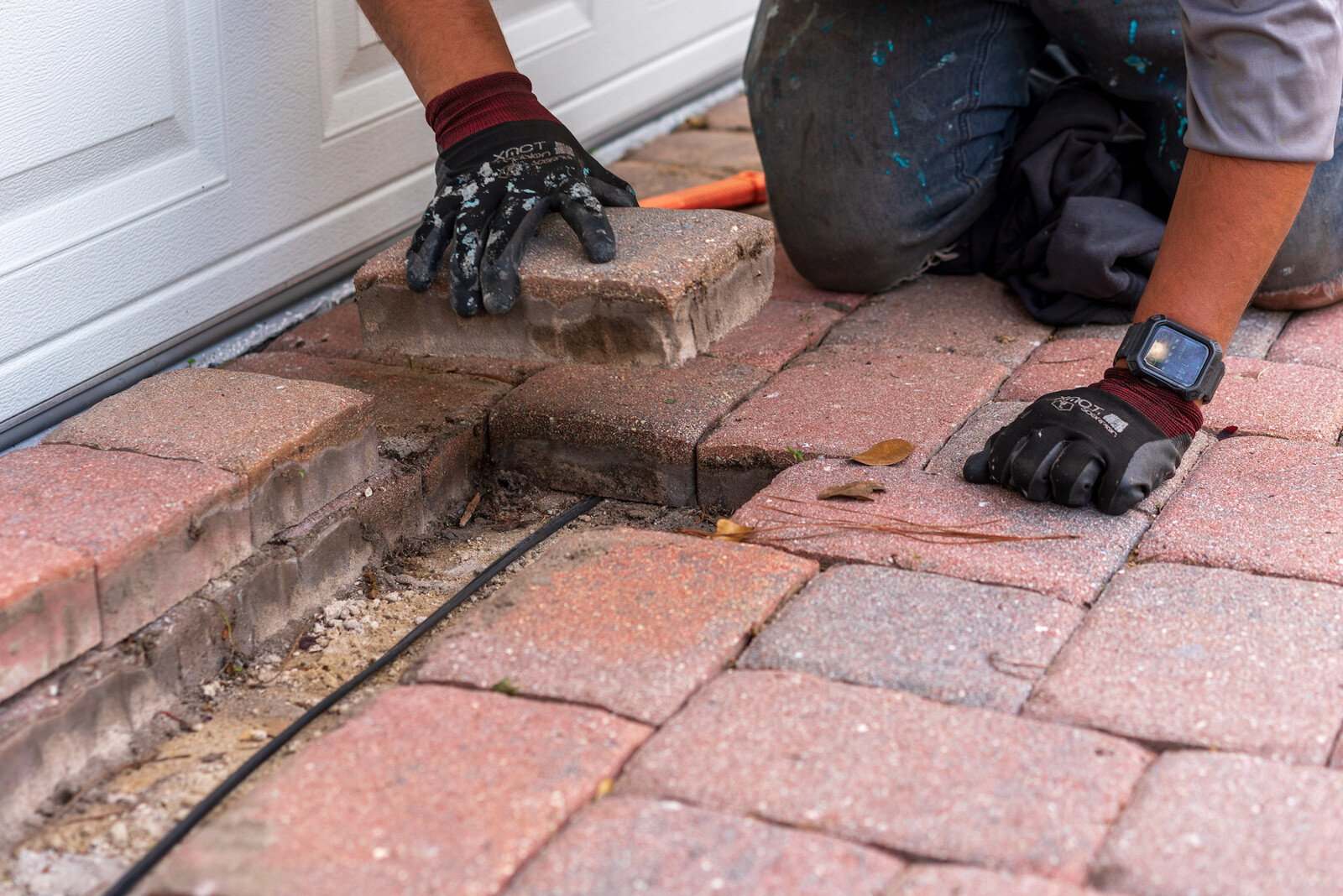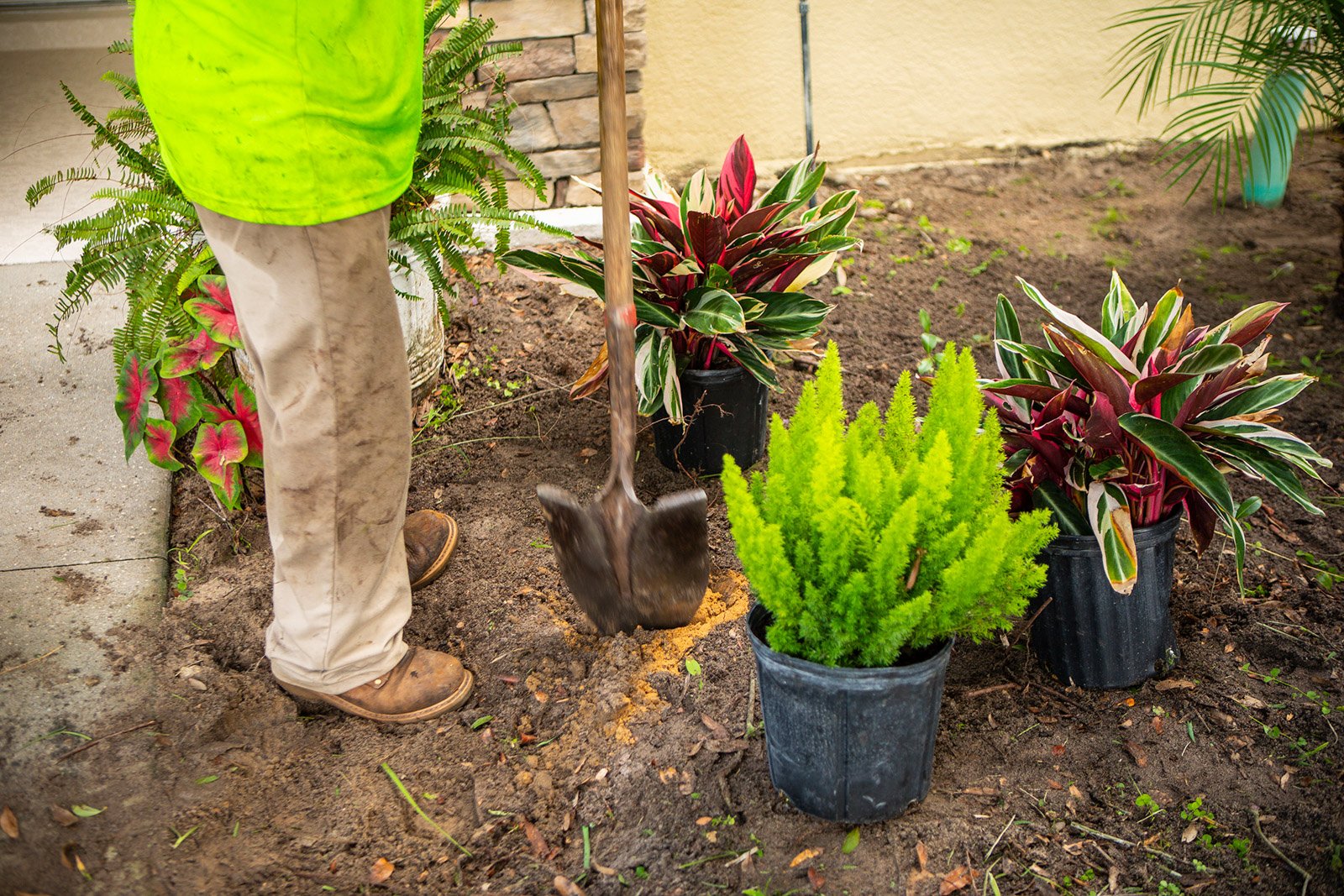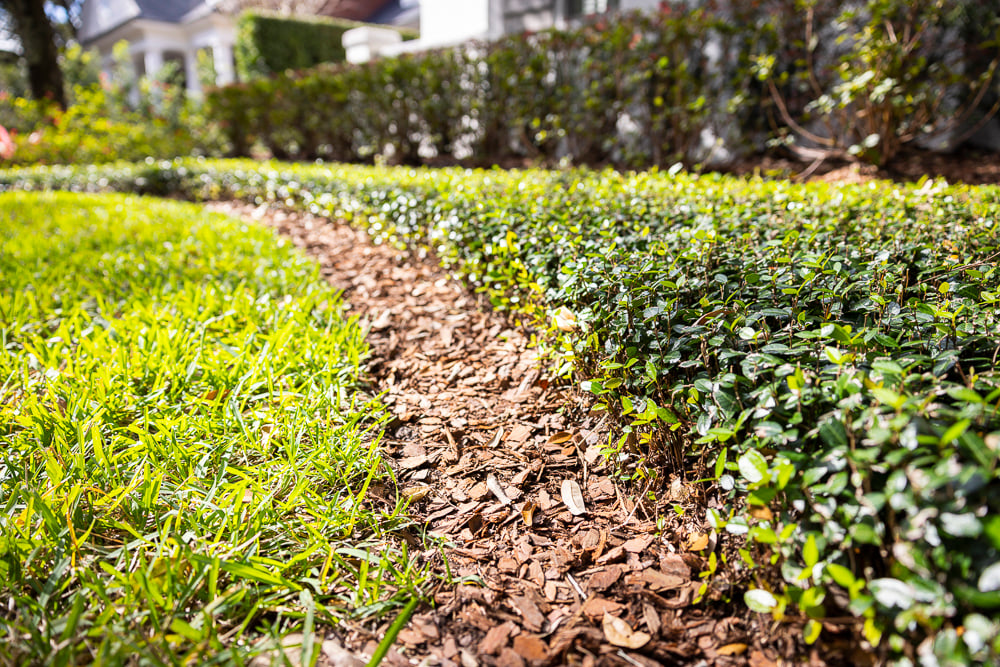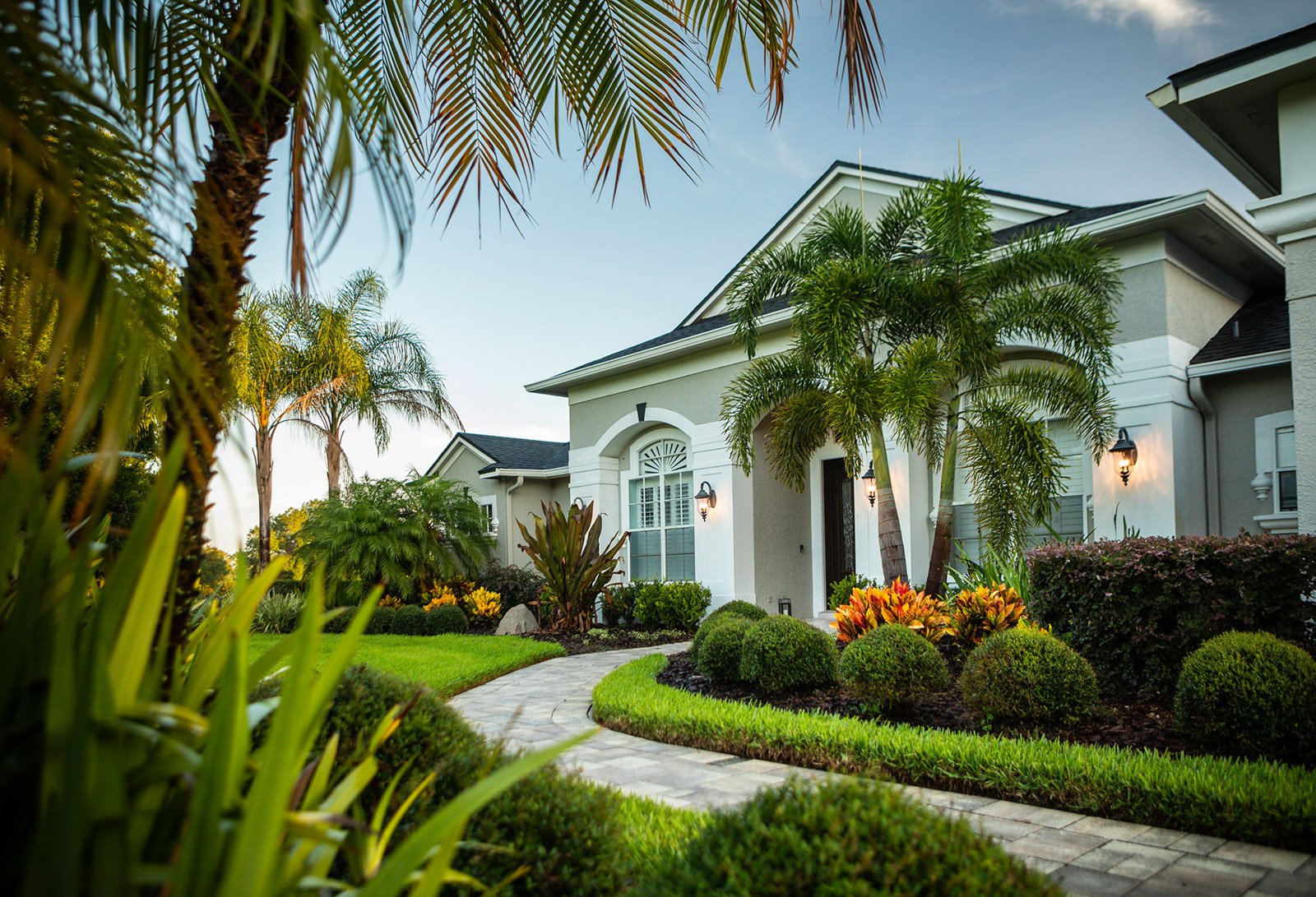When you look out over a great landscape design, it should all flow together seamlessly. But that doesn’t just happen — it takes skillful planning.
Hardscaping and softscaping are common parts of any thorough landscape design, and a creative landscape designer knows how to use them together and soften the edges between them so they blend.
That's where the right selection of plants is key.
Read more about hardscaping vs. softscaping and how to make it all work together, including:
- What’s the Difference Between Hardscaping and Softscaping?
- Best Plants to Soften Hardscape Design
- Beware of Water Runoff
- Soften Edges with Curves
- Softening Retaining Walls
- Maintaining Plants Near Hardscapes
- The Right Plants for Planting Beds Near Driveways
What are the best plants to soften hardscape surfaces? Brilliant blue daze. Fluffy Foxtail Fern. Gold Mound Duranta. Stunning Asiatic Jasmine.
Read on to learn more.
First, What’s the Difference Between Hardscape and Softscape?
Hardscape includes the non-living elements of your landscaping — materials like concrete pavers, stone and gravel.
Softscaping includes the landscaping elements found in nature—trees, shrubs, flowers, soil, and bark mulch.
While softscaping uses soft, organic materials that grow in nature, hardscaping uses hard, non-living elements like concrete and brick.

Often, your hardscape patio, driveway or retaining wall butts up against your turf. Sometimes, you need a buffer to blend the two landscaping elements together.
Or maybe you need plants to soften the hard edges of your pavers or stone.
This is the perfect place for planting design to help soften those hard edges.
Ground Source landscape designer Eric Frisch always designs the hardscape patio first, then follows up with plants to soften edges and add color and texture.
Best Plants to Soften Hardscape Design
Lots of Central Florida plants offer a soft counterpoint to hard edges:
Blue Daze
The abundant flowers of this tropical groundcover are brilliant blue and funnel-shaped, opening in the morning and closing up in the evening.
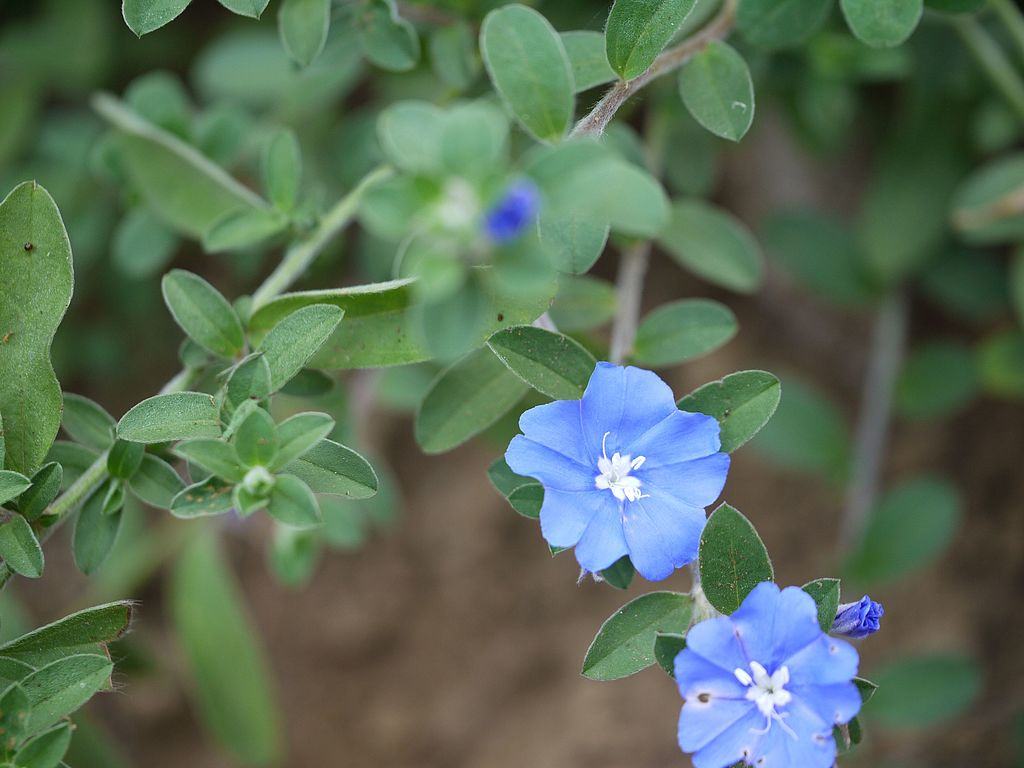
Heat-loving and drought-tolerant, it grows to about 12 inches and can spread up to three feet, perfect for a hardscape border plant.
African Iris
A tough, durable perennial that keeps coming back, African iris can tolerate full sun or part shade, standing water, or dry conditions.
It produces flowers year-round, making it one of the prettiest tropical plants, with striking white petals that have purplish blue and yellow markings.
%20CC.jpg?width=3504&height=2336&name=African%20Iris%20(Dietes%20iridioides)%20CC.jpg)
But it stands up to foot traffic, making it among the best plants to soften hardscape design. If it gets a bit trampled, it will come back quickly.
Foxtail Fern
Fluffy and fern-like, foxtail fern automatically softens hard lines, with arching symmetrical plumes of tightly packed, needle-like leaves that look soft and delicate.

Foxtail Fern are hardy, though, and need little care.
Mexican Heather
This purple pleaser re-blooms continuously, making it a great plant for hardscapes. It offers a nice soft counterpoint to paver edges.
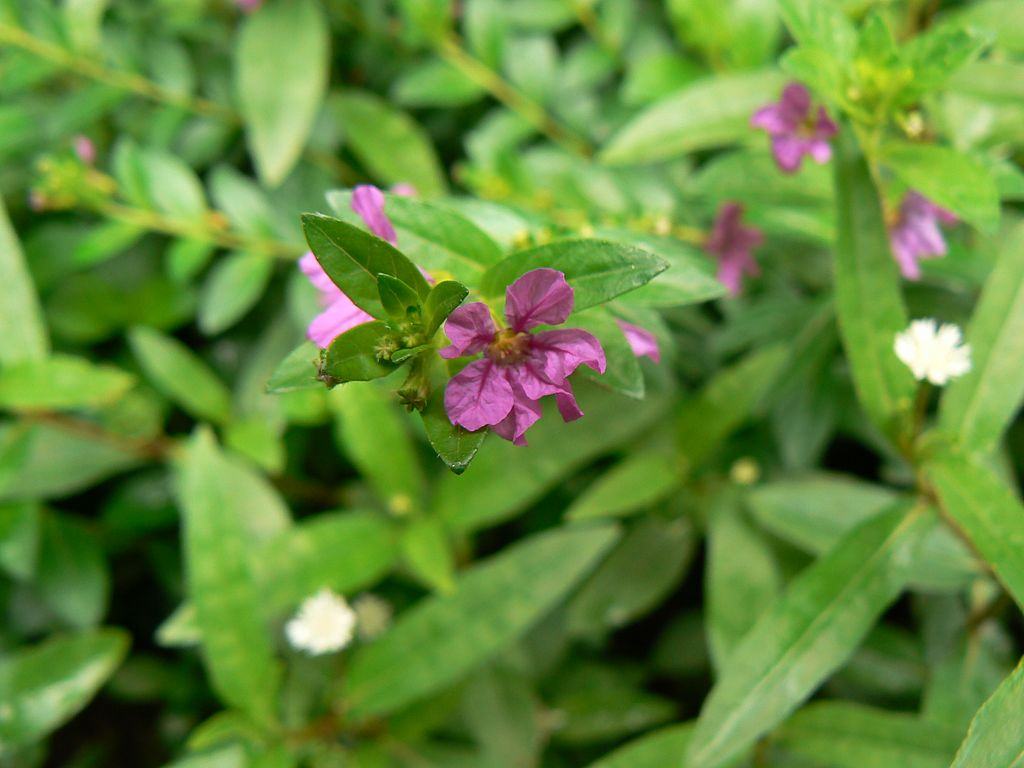
Plentiful purple flowers bloom on a tidy, compact shrub with finely textured, glossy, bright green foliage that makes a great edging or border.
Gold Mound Duranta
This beauty has bright yellow foliage that looks great against dark hardscapes. It brightens and softens those hard edges, making it one of the best plants for softening hardscape design.

The foliage stays low, making for a great contrast. The more sun it gets, the brighter the foliage, so it’s great for your sunny, hardscaped areas.
Beware of Water Runoff
Water doesn’t sink into hardscaped surfaces like in planting beds unless you’ve installed permeable pavers to let water drain through them.
That means water can run off your patio into your plants.
Frisch says some plants don’t like wet feet, so avoid using them at the edge of the hardscape.
One great example is podocarpus. This Central Florida favorite might seem like a great hardscaping plant, with its thick, luxurious foliage and narrow growing habit.
But it gets grouchy in excess water.
“You won't want all the water pouring off the pavers directly to a grouping of plants that don't like the excess water,” Frisch says.
Soften Edges with Curves
While contemporary houses typically look best with linear landscaping, Frisch loves curves for more traditional landscape design.
Curves automatically soften hard edges, whether it’s a curvy patio, a circular driveway or a winding pathway.
“Curvy edges of patios can blend with curvy beds to make a more natural and less rigid layout and soften the shape,” Frisch says.
Softening Retaining Walls With Plants
Terraced retaining walls are hardworking solutions to slopes and water management issues, but the hard lines can be softened.
When planting for hardscapes, look for cascading plants that tumble over the walls to help hide the view of the wall and soften the hard surfaces.
Frisch offers a few choices:
‘Blue Pacific’ Juniper
A ground-hugging evergreen with dense green foliage, this juniper stays low to the ground at about 1 foot, but spreads quickly and can reach a width of 5-6 feet.
Feathery, with sharp-tipped soft needles, 'Blue Pacific' Juniper offers an appealing softness to hardscape edges.
Sweet Potato Vine
This fast-growing plant is a classic "spiller" plant often used for container gardening. Its long tendrils are lush with leaves that spill over the edges of wherever it’s planted, including hardscape retaining walls.
Asiatic Jasmine
A Frisch favorite, Asiatic jasmine is a real stunner. Look for the variegated variety, with new leaves that emerge pink then turn variegated white and emerald green.
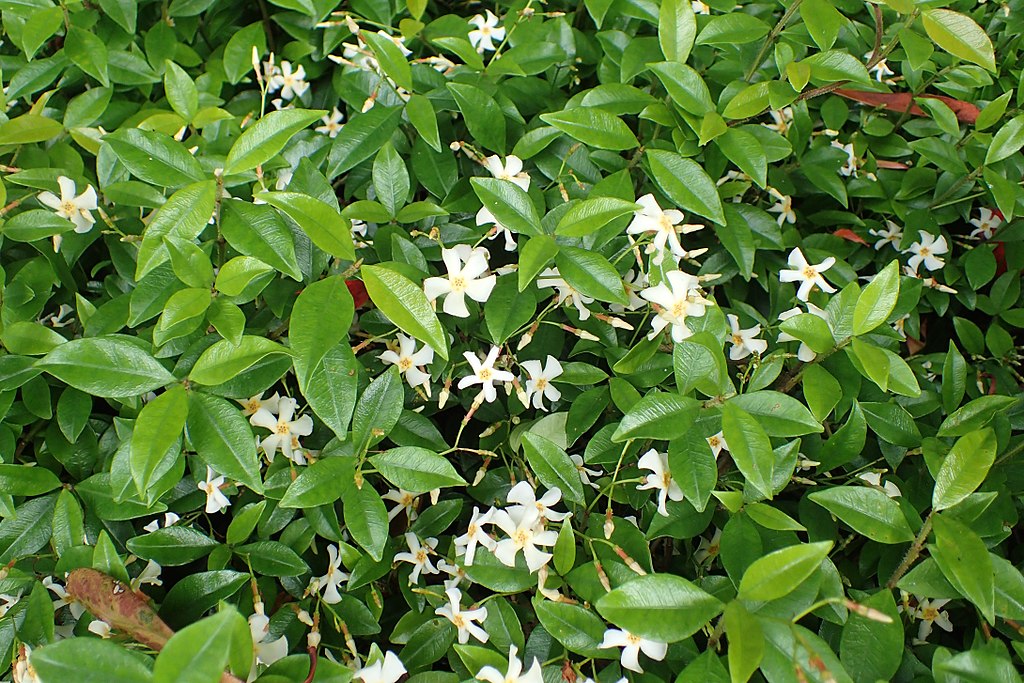
Bonus: fragrant, tubular yellow flowers bloom prolifically in the Florida heat.
Mandevilla
With its glossy green foliage and amazing trumpet-shaped flowers, Mandevilla is a great plant for hardscapes to tumble over retaining walls. It needs little care, but offers abundant blooms in white, bright pink, red, burgundy, yellow, or apricot from spring to first frost.
It needs full sun to produce those stunning blooms.
Maintaining Plants Near Hardscapes
Don’t go crazy with plants edging your patio, Frisch says.
“You're looking for a clean surface to use as a social space, not something that will take maintenance or be hard to clean,” he notes.
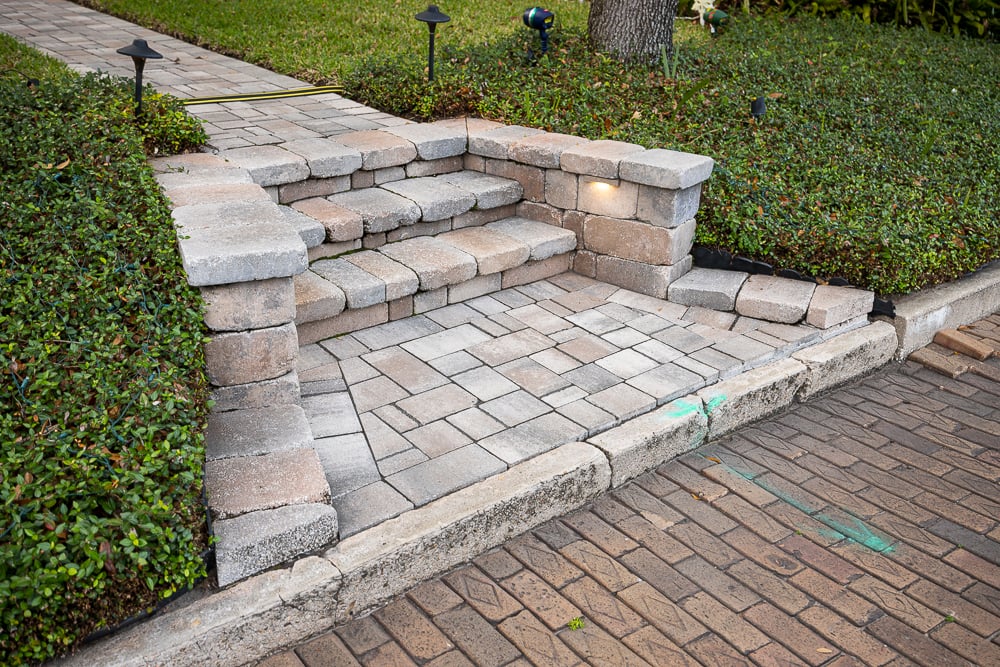
Plants along patios can be subject to other stressors, like excessive water runoff and the 'heat island' effect, in which hard surfaces trap and radiate more heat than softscapes like turf and plants.
Planted too close to paver patios or walkways, the wrong plants can be scorched and killed by this excessive heat effect.
The Right Plants for Planting Beds Near Driveways
When planting for hardscapes, avoid planting beds bordering driveways, Frisch suggests.
Remember, you need room to get out of the car.
“Plants get in the way if you're trying to carry kids or groceries out of the passenger side of the car and you have to navigate plants at the same time,” he says. “It’s not ideal at all.”
He suggests sod along the edges of the driveway, which still softens the hard edges but is sturdier than plants for foot traffic.
Narrow driveway? You can always widen it, he says, with more hardscape that complements your current driveway material.
“Not all HOAs will allow certain things to be done with the driveway,” Frisch notes, so it’s always smart to check before you start a new project.
Planting for Hardscapes? Trust Ground Source
What’s the difference between hardscaping and softscaping? What are the best plants to soften hardscape design?
Okay, your life doesn’t depend on it, but your landscaping might.
Need landscape design or hardscape installation in Central Florida? Or both?
Let’s get started.
We’re landscape design experts, but our skills don’t stop there. We’re with you every step of the way as you plan your perfect outdoor space.
Sod, irrigation, landscape design - let us transform your landscape into a place you spend every spare minute.
Are you ready to enjoy the vibrant, impressive landscape you've always wanted? Request a quote today! We’ll help you review your options and then transform your property.
Image Sources | Blue Daze, African Iris, Foxtail Fern, Mexican Heather, Gold Mound Duranta, Asiatic Jasmine




